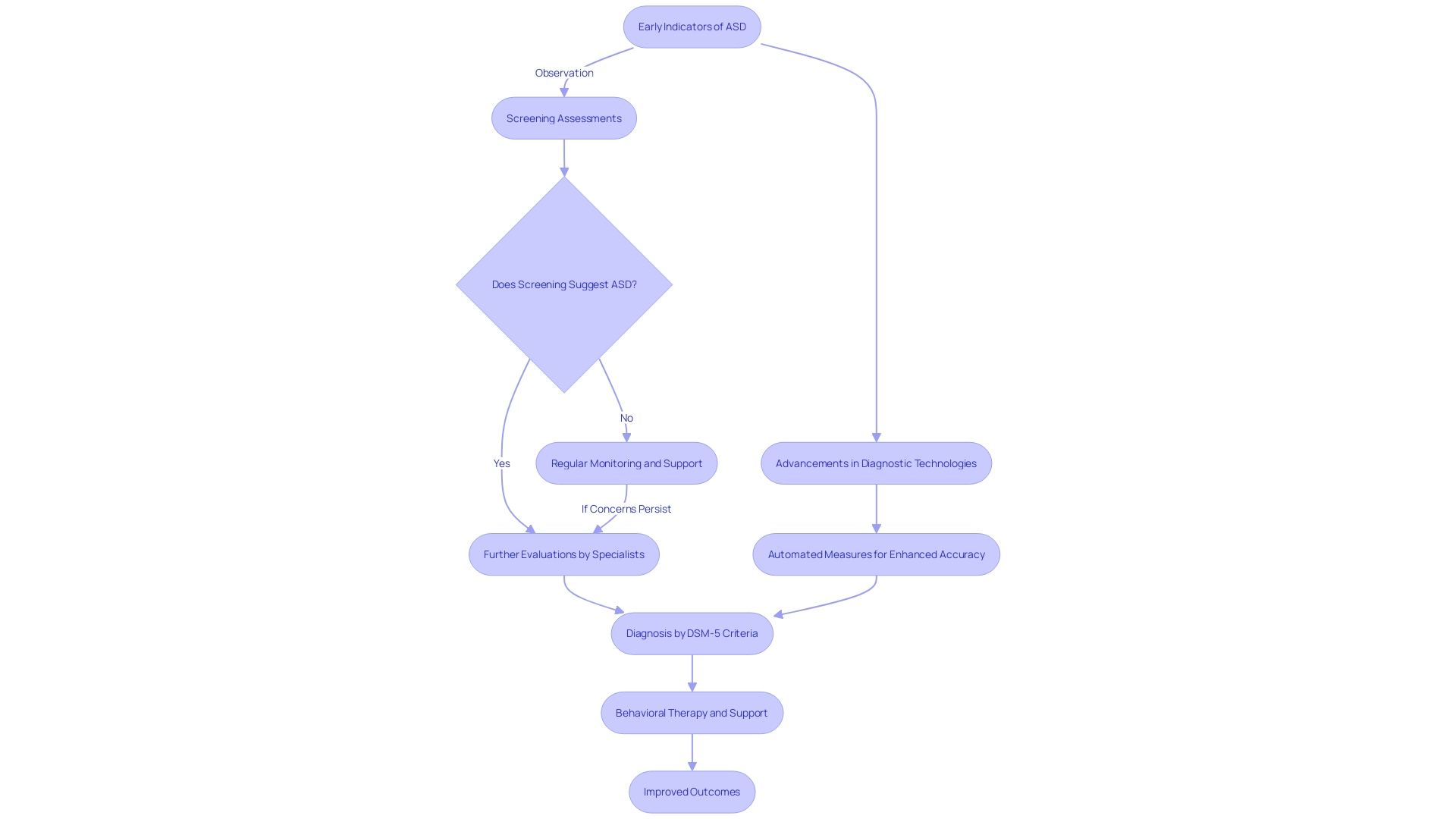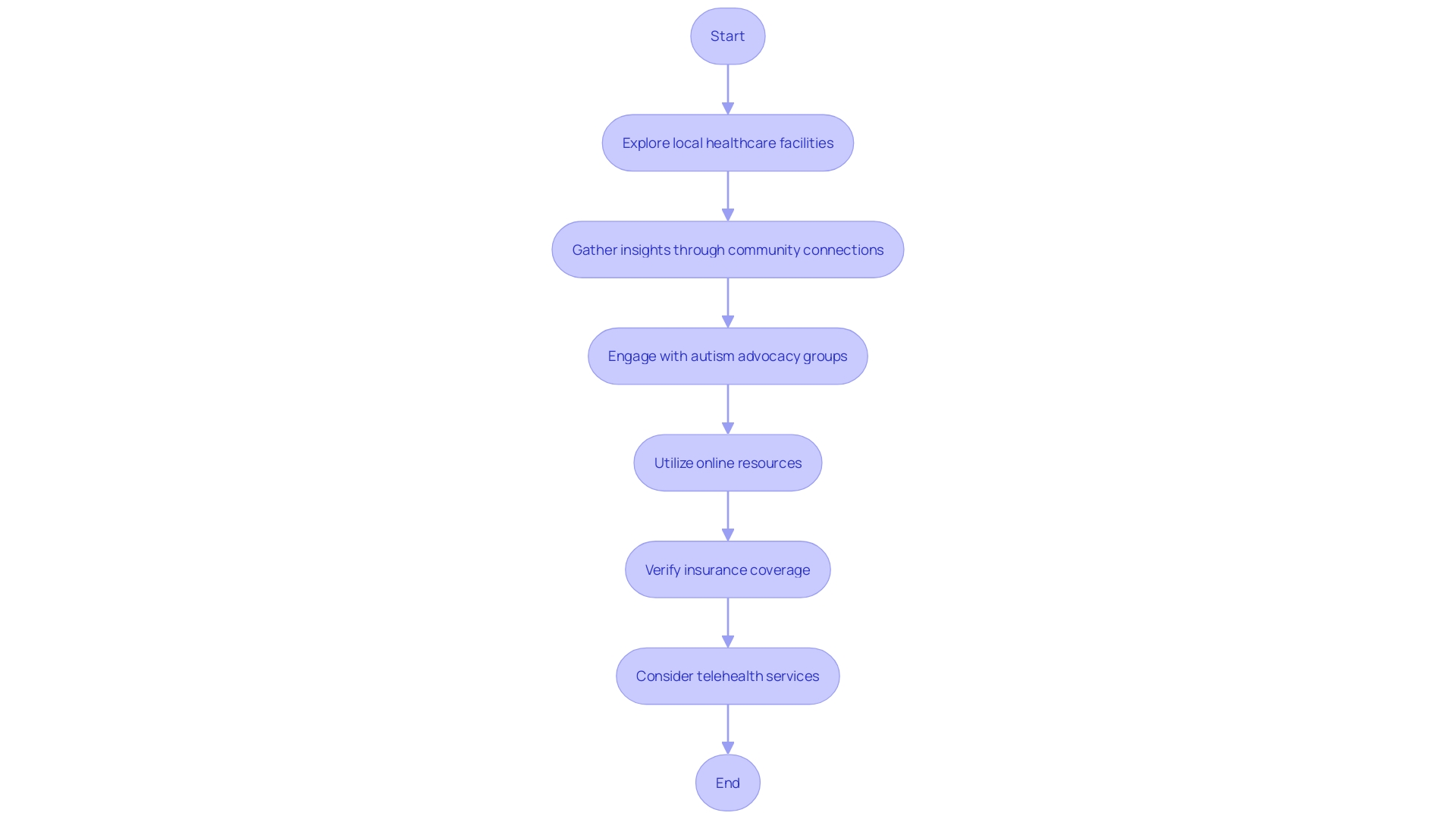Introduction
The journey to an autism spectrum disorder (ASD) diagnosis can be complex and challenging, requiring careful evaluation of a child's developmental history and behaviors. However, the accuracy of these evaluations can vary, leading to delayed diagnoses and missed intervention opportunities. In this article, we explore the importance of accurate evaluation in ASD diagnosis and the impact it has on early intervention services.
We also highlight the advancements in diagnostic technology that show promise in addressing these challenges. Additionally, we discuss the significance of accessible and timely autism screening services and provide strategies for finding them in your local area. By understanding the importance of accurate evaluation and having access to nearby screening services, parents and caregivers can ensure the well-being and development of their children with autism.
The Importance of Accurate Evaluation
The journey to an autism spectrum disorder (ASD) diagnosis is multi-faceted, involving detailed evaluations of a child's developmental history and observed behaviors. This process is guided by the DSM-5, which outlines specific criteria for ASD. Notably, it's the combined insights from parents or caregivers and healthcare professionals that shape the assessment.
While there are numerous tools available to evaluate ASD, the complexity of the disorder means no single assessment can definitively diagnose it.
A study spanning six specialized centers highlighted the challenges of diagnosing ASD in young children. Out of 496 children aged 16 to 30 months, only 70.2% of the cases were diagnosed with high certainty, indicating a significant degree of uncertainty in nearly one-third of the evaluations. This uncertainty often results in delayed diagnosis and access to crucial early intervention services.
Particularly, children with subtle autism-related behaviors and stronger cognitive and language skills may not be identified until later, missing early opportunities for intervention that could enhance their language, cognitive, and social abilities.
Despite early concerns—30% of parents notice developmental issues by 12 months, 50% by 18 months, and 80% by 2 years—the median age of diagnosis in the U.S. is between 4 to 5 years. This delay underscores the necessity of refining diagnostic practices and enhancing early detection.
Innovations in diagnostic technology, such as the SenseToKnow app developed at Duke University, show promise in addressing these challenges. The app's capacity to track and analyze a child's eye movements, facial expressions, and motor skills through AI, without the need for calibration or special equipment, exemplifies the advancements in creating more accessible and precise tools for early autism detection.

Understanding Autism Screening
Autism spectrum disorder (ASD) is a developmental condition marked by challenges with social skills, repetitive behaviors, speech, and nonverbal communication. The Centers for Disease Control and Prevention highlight early indicators, such as the absence of eye contact or response to one's name by nine months. Identifying these signs is the first step in the diagnostic journey.
Screening for autism involves a series of standardized assessments focused on a child's developmental milestones, behaviors, and social interactions. This process is designed to pinpoint potential indicators of autism and prompt further, more detailed evaluations. While screening does not conclusively diagnose autism, it is a pivotal part of the evaluation process.
As emphasized by The Autism Community in Action (TACA), early treatment, including behavioral therapy, can significantly improve outcomes, making the need for early and accurate diagnostic tools crucial. With the advent of new technologies, organizations like NeuroQure are striving to offer diagnostic services shortly after birth, aiming to reduce the typically lengthy path to an ASD diagnosis. Furthermore, advancements in automated measures of children's looking behavior during testing may soon enhance the predictive accuracy of these assessments, as reflected in research from JAMA Network Open and the American Medical Association.

Why Finding Autism Screening Near Me is Important
Securing autism screening services in your vicinity is not merely a matter of convenience; it's a step forward in nurturing equitable and supportive environments for children with autism. Early and accessible screenings enable timely interventions, essential for addressing the unique challenges faced by autistic children. These services connect families with specialists who understand the nuances of autism and are equipped with knowledge about local support systems, increasing the likelihood of comprehensive care.
As Dr. David (Dan) R. Offord, a prominent child psychiatrist, once expressed, "I do not mind if my children are in a race as long as the race is fair." To uphold this principle of fairness, it's crucial to ensure that children with autism have equal opportunities to benefit from resources that promote their mental health and social participation.
Local screening services not only streamline the process of navigating through the complex landscape of autism evaluation but also foster ongoing relationships between healthcare providers and families. These relationships are vital, especially considering that 31–55% of autistic individuals face co-occurring intellectual disabilities, necessitating tailored support. Moreover, the recent expansion of Medicaid coverage through the Home and Community Based Services (HCBS) Rule signifies a leap towards inclusivity, mandating states to provide previously optional services like occupational and speech therapies.
The proximity of autism screening services can also ease the burden on caregivers who are striving to support their children in a society that is only beginning to understand and accommodate neurodiversity. As we push for a fair race for all children, including those with autism, local screenings are a foundational step in recognizing unmet needs, harnessing community assets, and reducing stress for families, ultimately contributing to a more equitable and supportive society.
Strategies for Finding Autism Screening Near Me
- Initiate with a thorough exploration of local healthcare and evaluation facilities, aiming to pinpoint those that excel in early intervention and comprehensive assessment for autism. Facilities staffed by professionals with considerable expertise in autism spectrum disorder (ASD) are particularly beneficial.
- Gather insights through community connections, whether it be from your child's healthcare provider, therapists, or other families navigating similar experiences with autism. Their recommendations can be invaluable in guiding you to reputable screening services.
- Engage with local autism advocacy groups and support networks. These organizations can offer a wealth of information about services in your vicinity and may assist in navigating the available options.
- Harness the power of the internet to expand your search. Online resources can provide a broader spectrum of options for autism screening services, often with the capability to refine searches by location and service type.
- Verify your insurance coverage for autism screening and assessments to understand the financial aspect of these services. Insurance providers can inform you of in-network options and the documentation required to access services.
- Consider the possibility of telehealth services for autism screening, especially if local services are sparse or inaccessible. This modern approach can help overcome geographical and transportation barriers, making the screening process more manageable for your family.
By taking these proactive steps, you'll be better positioned to secure the right autism screening services, setting the stage for a more informed and supported developmental journey for your child.

Conclusion
In conclusion, accurate evaluation is crucial for diagnosing Autism Spectrum Disorder (ASD) and providing early intervention services. However, the accuracy of evaluations can vary, leading to delayed diagnoses and missed intervention opportunities. Early intervention is vital for improving language, cognitive, and social abilities in children with ASD.
Advancements in diagnostic technology, like the SenseToKnow app, offer more accessible and precise tools for early autism detection. Screening for autism is the first step in the diagnostic process, allowing for the identification of potential indicators. Securing autism screening services in your local area is vital for creating equitable and supportive environments for children with autism.
Finding autism screening services can be facilitated through exploration of local healthcare facilities, gathering insights from community connections, engaging with advocacy groups, and utilizing online resources. By taking proactive steps to find the right autism screening services, parents and caregivers can ensure the well-being and development of their children with autism.




